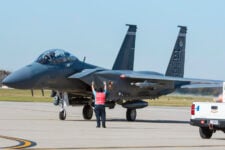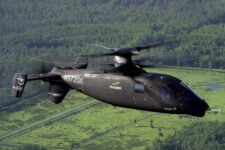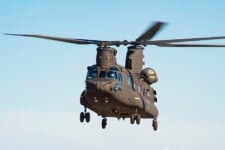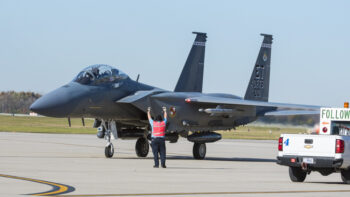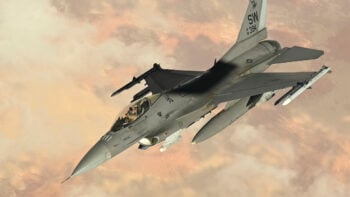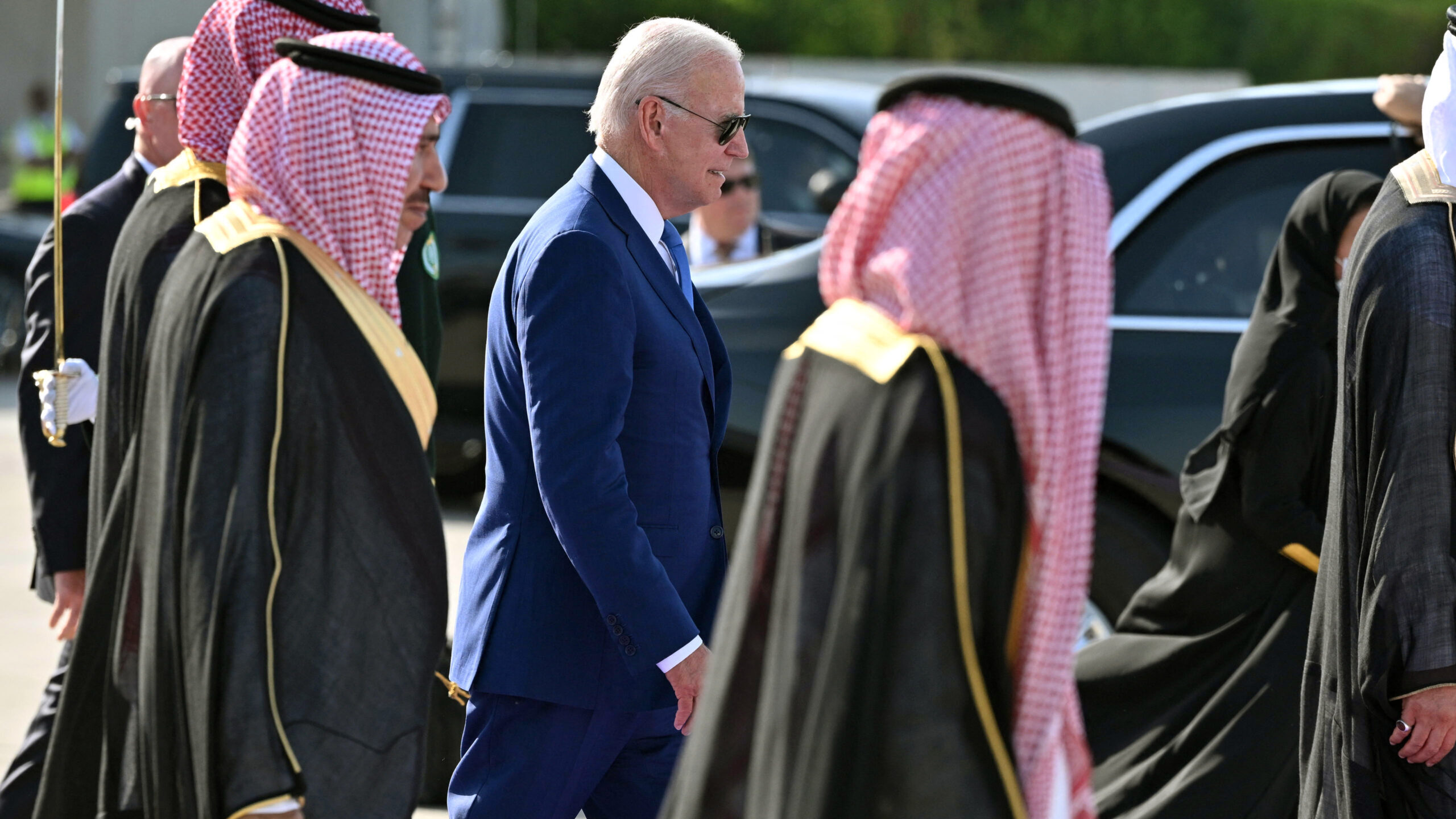
TOPSHOT – US President Joe Biden boards Air Force One before departing from King Abdulaziz International Airport in the Saudi city of Jeddah on July 16, 2022, at the end of his first tour in the Middle East as president. (Photo by MANDEL NGAN / AFP) (Photo by MANDEL NGAN/AFP via Getty Images)
BEIRUT — The Middle East is one of the most unpredictable regions in the world, where one can go to sleep in peace but wake up surrounded by war, as has been the case here in recent weeks.
It’s also a region of ever shifting political relationships, military ties and defense deals.
Looking back at 2023, it was hard to choose five from a whole generation of diverse stories, but for me, these were the most surprising and interesting stories that leant themselves to in-depth reporting.
[This article is one of many in a series in which Breaking Defense reporters look back on the most significant (and entertaining) news stories of 2023 and look forward to what 2024 may hold.]
1. UAE cancels €800m military helicopter deal with Airbus: Government official
In a surprising turn of events, in May the United Arab Emirates canceled a nearly $1 billion contract with Airbus to procure 12 H225 Caracal multirole helicopters. Breaking Defense got the exclusive during an interview with an Emirati official who showed how serious the UAE government and Tawazun council, which has become the armed forces contracting authority, are regarding defense localization efforts.
“At this point in time, our primary focus is on developing in-country value through all of the operations that we undertake in collaboration with both our local and our international partners,” Muammar Abdulla Abushehab, defense and security industry affairs sector chief for the Tawazun council, said in a May 8 interview.
2. Where west and east (sensors) meet: Egyptian firm debuts mixed C5ISR system
This article made it to the second rank, just because it is always fascinating how Middle East and North Africa countries make the best of the available resources. Egypt runs a mixed fleet of Western (European and American) origin as well as Eastern (Chinese and Russian) origin, and as it is widely known that these systems mostly cannot “talk together” or share data.
But in Egypt, the country’s engineers said they developed a C5ISR platform that can help with the interoperability issue.
“C5ISR can deal with hybrid defense systems from different countries and following different protocols,” the head of the company’s Electronic Industries Division, Ziad Badawi, told Breaking Defense. Hence Egypt’s operational efficiency is not hindered by this obstacle.
3. As interest in Russia’s S-400 wanes, Turkey pushes its own air defense systems
Defense observers raised their eyebrows in March when a high-level Turkish industry official claimed Ankara didn’t need Russian air defenses like the S-300 and S-400, because systems made my local firms could replace them.
So Breaking Defense spoke to experts who said that while the boast may be a bit premature, it’s based on Turkey’s very real progress in its domestic air defense industry.
In this report experts took readers through not only how the geopolitical relationship has changed between Turkey and Russia, but the kinds of systems Turkey is working on to potentially replace the Russian tech.
4. EXCLUSIVE: US says Iran’s claimed naval alliance with Saudi, Gulf nations ‘defies reason’
After Iran signed an agreement to restore diplomatic ties with Saudi Arabia, it seems that its ambitions soared high enough to claim that it was forming a naval alliance with Gulf nations. But in less than 24 hours, the US poured cold water on that idea, saying it “defies reason.”
“It defies reason that Iran, the number one cause of regional instability, claims it wants to form a naval security alliance to protect the very waters it threatens,” US 5th Fleet and Combined Maritime Forces spokesperson Cmdr. Tim Hawkins said. He said at the time that by then, Iran has attacked or seized 15 internationally flagged merchant vessels.
5. In a first, Saudi drone to be produced in Turkey
It’s not every day one can see a Gulf-made unmanned aerial vehicle produced outside the country’s borders. But here we go: A Saudi drone maker said it will produce its unmanned vehicles in Turkey, in a dual attempt to boost presence in a new market and to add Turkish expertise to it.
It is remarkable how the world’s biggest defense importer, Saudi Arabia, is evolving in defense production and Vision 2030, and more remarkable how confident officials have seemed that it can reach 50 percent defense localization by 2030.

